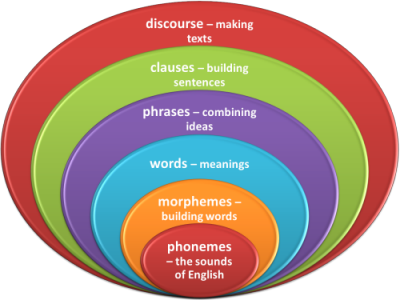A short course in language analysis
 |
This short course is intended for
anyone who speaks English and now wants to teach it. If English is your first language, and especially if you were educated in Britain, you may know what's right and what's wrong but may not be able to put your finger on why because you have never been taught the structure of English explicitly. Alternatively, you may have acquired English to a high level as a second (or third etc.) language but without being able to state the rules of grammar in English or describe it well for your students. If either alternative describes you, this course is for you. |
| finding your way in the language jungle |
This page describes the structure of this short course and contains an index of everything that's in it. It also has a suggested route through the materials, slowly building on what you learn as we go along.
This is quite a traditional approach to the analysis of English.
This form has been selected because it is familiar to learners and
teachers and is the basis on which many syllabuses and course
materials are constructed. There is no assertion here that it
is either the best or the only way to approach the analysis of
English.
Understanding this nuts-and-bolts approach to the language will form
the basis for an understanding of more sophisticated and interesting
approaches should you wish to investigate further.
Advice concerning where to go next comes at the end.
 |
What do we need to analyse? |
Traditionally, language can be imagined in six areas, like this:

This course is divided in the same way. You can access it
at any point but if language analysis is quite new to you, the best
approach is to take each area in turn.
Here's the index. Click where you want to go.
| Phonemes | What is a phoneme? | Phrases, clauses and verbs | Phrase structure |
| Consonants | Clause structure | ||
| Vowels | Sentences | Types of sentences | |
| Morphemes | What is a morpheme? | Conjunction | |
| Word formation | Discourse | Cohesion | |
| Words | What is word class? | Theme and rheme | |
| Meaning | Take all the tests again to check and revise. | ||
| Relationships | Where next? | ||
Sometimes, there are links in the sections of this course to guides in the rest of the site. All these links will open in new tabs so simply shut them to return to the course.
At the end of each guide, you will see this:
 |
Learn more about:Links here will take you to guides on this site which have a
lot more detail. These guides are usually in the in-service
training section of the site and will open in a new tab so you do
not lose contact with the course. |
